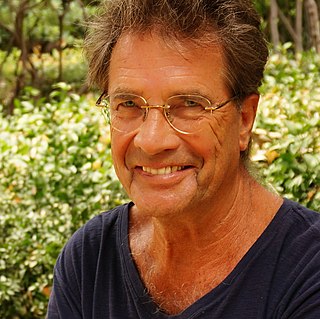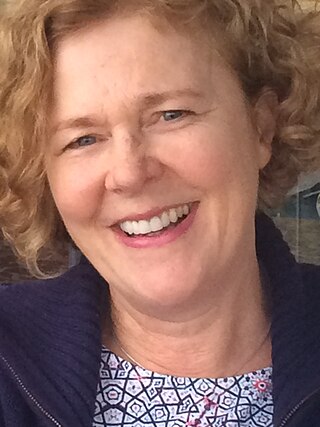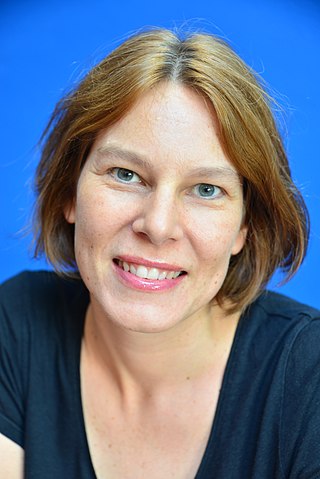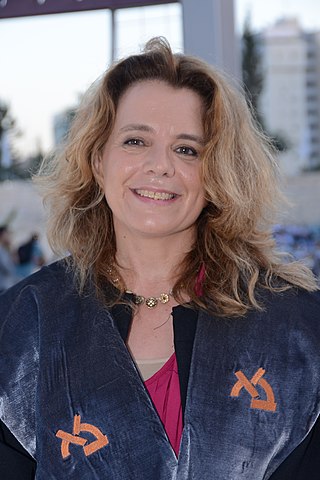Related Research Articles
Post-structuralism is a philosophical movement that questions the objectivity or stability of the various interpretive structures that are posited by structuralism and considers them to be constituted by broader systems of power. Although post-structuralists all present different critiques of structuralism, common themes among them include the rejection of the self-sufficiency of structuralism, as well as an interrogation of the binary oppositions that constitute its structures. Accordingly, post-structuralism discards the idea of interpreting media within pre-established, socially constructed structures.
Critical legal studies (CLS) is a school of critical theory that developed in the United States during the 1970s. CLS adherents claim that laws are devised to maintain the status quo of society and thereby codify its biases against marginalized groups.
Stylistics, a branch of applied linguistics, is the study and interpretation of texts of all types, but particularly literary texts, and/or spoken language in regard to their linguistic and tonal style, where style is the particular variety of language used by different individuals and/or in different situations or settings. For example, the vernacular, or everyday language may be used among casual friends, whereas more formal language, with respect to grammar, pronunciation or accent, and lexicon or choice of words, is often used in a cover letter and résumé and while speaking during a job interview.
Critical discourse analysis (CDA) is an interdisciplinary approach to the study of discourse that views language as a form of social practice. CDA combines critique of discourse and explanation of how it figures within and contributes to the existing social reality, as a basis for action to change that existing reality in particular respects. Scholars working in the tradition of CDA generally argue that (non-linguistic) social practice and linguistic practice constitute one another and focus on investigating how societal power relations are established and reinforced through language use. In this sense, it differs from discourse analysis in that it highlights issues of power asymmetries, manipulation, exploitation, and structural inequities in domains such as education, media, and politics.
Norman Fairclough is an emeritus Professor of Linguistics at Department of Linguistics and English Language at Lancaster University. He is one of the founders of critical discourse analysis (CDA) as applied to sociolinguistics. CDA is concerned with how power is exercised through language. CDA studies discourse; in CDA this includes texts, talk, video and practices.

Teun Adrianus van Dijk is a scholar in the fields of text linguistics, discourse analysis and Critical Discourse Analysis (CDA).
Henry George Widdowson is a British linguist and an authority in the field of applied linguistics and language teaching, specifically English language learning and teaching.

Robert Franklin Barsky is Canada Research Chair in Law, Narrative, and Border Crossing. He is a Professor in the College of Arts and Science and Associate Faculty in the School of Law at Vanderbilt University in Nashville, Tennessee. He is an expert on Noam Chomsky, literary theory, convention refugees, immigration and refugee law, borders, work through the Americas, and Montreal. His biography of Chomsky titled Noam Chomsky: A Life of Dissent was published in 1997 by MIT Press, followed in 2007 by The Chomsky Effect: A Radical Works Beyond the Ivory Tower, and in 2011 by a biography of Chomsky's teacher: Zellig Harris: From American Linguistics to Socialist Zionism. His most recent books are Undocumented Immigrants in an Era of Arbitrary Law and Hatched!, a novel.
Costas Douzinas is a professor of law, a founder of the Birkbeck School of Law and the Department of Law of the University of Cyprus, the founding director of the Birkbeck Institute for the Humanities at Birkbeck, University of London, the President of the Nikos Poulantzas Institute and a former politician.

Ruth Wodak is an Austrian linguist, who is Emeritus Distinguished Professor and Chair in Discourse Studies in the Department of Linguistics and English Language at Lancaster University and Professor in Linguistics at the University of Vienna.
Martha Albertson Fineman is an American jurist, legal theorist and political philosopher. She is Robert W. Woodruff Professor of Law at Emory University School of Law. Fineman was previously the first holder of the Dorothea S. Clarke Professor of Feminist Jurisprudence at Cornell Law School. She held the Maurice T. Moore Professorship at Columbia Law School.
Stanley E. Porter is an American-Canadian academic and New Testament scholar, specializing in the Koine Greek grammar and linguistics of the New Testament.
Martin McQuillan is a Scottish-born literary theorist, cultural critic and journalist currently employed at Edge Hill University. He was Professor of Literary Theory and Cultural Analysis and Dean of the Faculty of Arts and Social Sciences at Kingston University, London, where he was also Co-Director of The London Graduate School, and was Deputy Vice-Chancellor of Research, Business and Innovation between 2015 and 2017. He was previously Pro-Dean of Research (2005–09) for the Faculty of Performance, Visual Arts and Communications at the University of Leeds, where he was also Head of the School of Fine Art, History of Art and Cultural Studies (2001–2005). Before that he was a lecturer in English at Staffordshire University (1997–2000).
Susan Lynn Ehrlich is a Canadian linguist known for her work in both language and gender, language and the law, and the intersections between them. She studies language, gender and the law, with a focus on consent and coercion in rape trials.

Judith Baxter was a British sociolinguist and Professor of Applied linguistics at Aston University where she specialised in Gender and Language, and Leadership Language. She served in editorial positions with several academic journals.
Paul Baker is a British professor and linguist at the Department of Linguistics and English Language of Lancaster University, United Kingdom. His research focuses on corpus linguistics, critical discourse analysis, corpus-assisted discourse studies and language and identity. He is known for his research on the language of Polari. He is a Fellow of the Academy of Social Sciences and a Fellow of the Royal Society for Arts.
Veronika Koller is an Austrian-British linguist. She is Professor of Discourse Studies at the Department of Linguistics and English Language of Lancaster University, United Kingdom. Her research focuses on critical discourse analysis.

Monika Bednarek is a German-born Australian linguist. She is a professor in linguistics at the University of Sydney and director of the Sydney Corpus Lab. She is one of the co-developers of Discursive News Values Analysis (DNVA), which is a framework for analyzing how events are constructed as newsworthy through language and images. Her work ranges across various linguistic sub-disciplines, including corpus linguistics, media linguistics, sociolinguistics, discourse analysis, stylistics, and applied linguistics.

Michal Alberstein is an expert in the field of conflict resolution and reconstruction of legal thought. Alberstein is the Dean of The Faculty of Law, Bar-Ilan University, the Primary Investigator on an ERC consolidator grant to study Judicial Conflict Resolution (JCR) and the academic chairperson of “Israeli hope” project, supported by the president of Israel and High Council of Education.
Alastair Pennycook is an applied linguist. He is Emeritus Professor of Language, Society and Education at the University of Technology Sydney, and a Research Professor at the Centre for Multilingualism in Society Across the Lifespan at the University of Oslo. He was elected a fellow of the Australian Academy of the Humanities in 2016.
References
- ↑ Goodrich, P. (1984). "Legal discourse : Studies in linguistics, rhetoric and legal analysis".
{{cite journal}}: Cite journal requires|journal=(help)